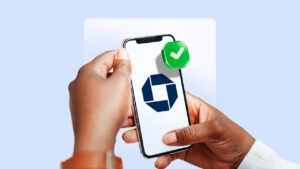Blacklisted by ChexSystems? Here’s what it is and what to do

Key takeaways
- ChexSystems is a specialty consumer reporting agency that tracks consumers’ deposit and debit history, similar to a credit bureau.
- Overdraft fees are a major contributor to negative reports on ChexSystems, and can result in being denied a bank account.
- Consumers can obtain a free copy of their ChexSystems report and dispute any errors found.
ChexSystems is a specialty consumer reporting agency — similar to a credit bureau, but it tracks consumers’ deposit and debit history, rather than their ability to pay bills on time. Generally, ChexSystems reports on blemishes in banking history, such as overdrafts and unpaid fees.
A history of overdrawn accounts and fees on your ChexSystems report could stand in the way of getting a new checking account or high-yield savings account.
How does ChexSystems work?
ChexSystems helps financial institutions assess the risk of accepting customers. The reporting agency collects information about consumers from banks to create a report and issues a risk score.
ChexSystems issues consumer disclosure reports, which include details such as suspected fraudulent activity on any accounts under your name, non-sufficient funds activity and returned checks. You’re entitled to a free copy of this report once every 12 months or more frequently under certain circumstances. In addition to requesting your own copy, banks rely on consumer disclosure reports to determine whether to grant a customer access to a bank account.
Based on the information in your disclosure report, ChexSystems will assign you a consumer score between 100 and 899. The higher your score, the lower risk you present to a bank as an account holder.
Because ChexSystems is subject to the Fair Credit Reporting Act, it must meet certain requirements, such as reporting information accurately and investigating disputes from consumers in a timely manner. ChexSystems is overseen by the Consumer Financial Protection Bureau and the Federal Trade Commission.
What information banks report to ChexSystems
The CFPB website lists common reasons why consumers may have a negative consumer disclosure report:
-
Unpaid negative balances (as a result of overdraft fees, for example).
-
Involuntary closure of an account.
-
Suspected fraudulent activity.
-
Owning a joint account with someone else who had one of these problems.
Overdrafts in consumers’ banking history can result in serious consequences. If you can’t open a bank account, you may be forced to use expensive alternatives to handle routine transactions, such as nonbank check cashing.
When someone doesn’t have access to a bank account, they’re considered unbanked. In 2023, 4.2 percent of U.S. households — representing about 5.6 million households — were unbanked, according to an FDIC survey.
Are credit reports also part of the review process?
ChexSystems reviews banking history, not credit history. Information in a ChexSystems consumer file can include debit history, checking account closures and check order placements.
There are three credit bureaus that supply credit reports, and the information stored by the credit bureaus is separate from ChexSystems. In other words, bad credit doesn’t necessarily affect your ability to open a bank account. But good credit also won’t help you get approved for a bank account if ChexSystems reports a negative banking history.
How to get a copy of your ChexSystems report
You can get a free copy of your ChexSystems report once every 12 months. Here’s how to get a copy of your report:
-
Register for an account on the ChexSystems website by filling out a form with your personal identifying information, answering security questions and choosing a username and password.
-
Log into the ChexSystems portal and navigate to “Request a Report.” You can choose between the “Consumer Disclosure,” which shows what information is included in your file, or “Consumer Score Report” to view your score.
If you prefer to request your copy via snail mail instead of online, print out this form and send it to:
Chex Systems, Inc.
Attn: Consumer Relations
PO Box 583399
Minneapolis, MN 55458
You can also call ChexSystems at 800-428-9623 to speak to a representative between 8 a.m. and 7 p.m. Central Time, Monday through Friday.
Errors can be disputed on ChexSystems’ website, by mail or by fax.
I’ve been denied. Can I get a bank account?
If you’ve been blacklisted by ChexSystems, you still have options.
-
Look for a bank or credit union that offers second-chance checking accounts: Second-chance checking accounts are designed for consumers with past struggles with overdraft fees or other issues. They may involve a monthly fee, a minimum balance requirement or both, but they give consumers the opportunity to show that they can responsibly manage an account.
-
Consider safe checking accounts, too: Some financial institutions offer other low-risk accounts that you might qualify for, such as safe checking accounts that don’t offer checks but provide a debit card.
-
Get a prepaid card: While this route isn’t as versatile as a bank account and can come with additional fees, the best prepaid cards offer tools like direct deposit and a mobile app. Plus, they’re safer than carrying around cash that can be lost or stolen.
How long do you stay on ChexSystems?
According to ChexSystems, negative information is generally kept for five years from the report date. Consumers can request removal of a report earlier than five years if it is out-of-date or incorrect by submitting a dispute to ChexSystems. By law, ChexSystems has 30 days to investigate a dispute, after which it may remove your the information from report.
Bottom line
Banks and credit unions use information provided by ChexSystems to determine consumers’ risk levels. Your bour banking history of the last five years is stored by ChexSystems. If you’re not approved for a deposit or checking account, it’s likely because of something in the ChexSystems report, like an involuntary checking account closure.
Look out for errors in ChexSystems reports and dispute them, so that incorrect information won’t affect your ability to open an account. If you’ve been blacklisted by ChexSystems for a negative banking history, there are second-chance or safe bank account options available.
Why we ask for feedback Your feedback helps us improve our content and services. It takes less than a minute to complete.
Your responses are anonymous and will only be used for improving our website.






